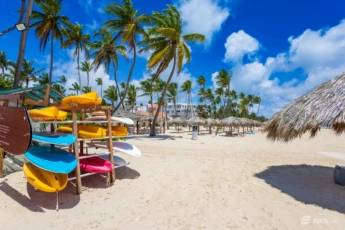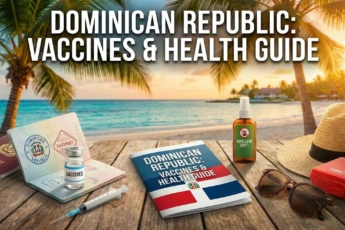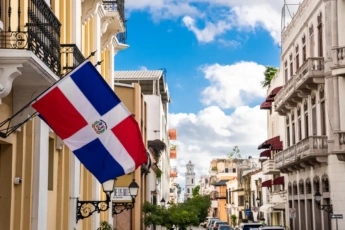Passport Requirements for the Dominican Republic in 2026
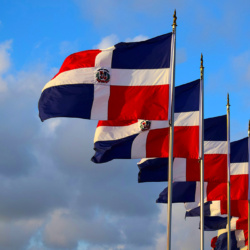
How to get residency in the Dominican Republic and main difficulties to obtain it in 2026
The Dominican Republic is a state located on the island of Haiti. Its shores are washed by the Caribbean Sea and the waters of the Atlantic Ocean. The republic boasts a mild climate. Despite the fact that it is…
Read more
Punta Cana Airport (PUJ) – All information that you need in 2026: covid, statistics, transfers, hotels nearby
Punta Cana International Airport (PUJ) is the leading airport for travel to the Dominican Republic. So, it is convenient for many tourists since it offers direct flights from over 26 countries and 90 airports around the world. PUJ is…
Read more
Can US Citizens Travel to Dominican Republic in 2026?
During a pandemic and many other problems, those who want to go on vacation have a question - "Can US Citizens Travel to Dominican Republic?". Well, if you need a short answer - yes, U.S citizens can travel to…
Read more
How Long Can I Stay in the Dominican Republic in 2026?
Planning your Dominican Republic vacation is definitely one of the most pleasant things. You choose the period of your stay in the country, pack your bags. When you arrive at your destination, you enjoy being here, and you want…
Read more
E-ticket Dominican Republic – New Electronic Ticket for Travelers to the DR
What do tourists need to travel to the Dominican Republic? Most tourists, including citizens of the United States, Canada, most of the countries of Central and South America, and the European Union, only need a valid passport to enter…
Read more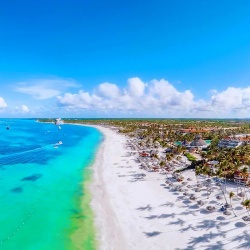
Do you need a passport to go to Punta Cana in 2026?
The short answer is - yes, Punta Cana and the Dominican Republic as a whole needs a valid passport from a tourist with at least one blank page for an entry stamp is required to enter the country. What…
Read moreTraveling to the Dominican Republic requires adherence to specific passport and visa regulations. This guide provides an in-depth look into these requirements to ensure your trip to this country is seamless and stress-free.
Do You Need a Passport to Enter the Dominican Republic?
Traveling to the Dominican Republic involves specific documentation requirements. It is important to understand what is necessary to ensure a smooth entry process.
- Tourists. A valid passport is mandatory for most nationalities, with at least six months of validity remaining.
- Residents. Residency permits require a valid passport when applying.
- Exceptions. Citizens from certain countries in the Caribbean and Latin America may enter with a national ID card.
In conclusion, while passports are generally essential for entry, there are exceptions for specific countries. Ensure your documents meet the requirements for a hassle-free experience.
Visa-Free Travel and Tourist Cards
The Dominican Republic allows visa-free entry for citizens of numerous countries, provided they hold a valid passport. Instead of a visa, travelers may need a tourist card, which is available online or upon arrival.
Passport validity requirements
| Country or region | Minimum passport validity | Additional notes |
|---|---|---|
| United States | 6 months | Visa-free for stays up to 30 days. |
| European Union | 6 months | Visa-free with valid return ticket. |
| Canada | 6 months | Electronic Travel Authorization (eTA) not required. |
| Latin America | Varies | Check specific bilateral agreements. |
Therefore, travelers from most countries only need a tourist card and minimum passport validity requirements to enter the Dominican Republic without any problems. Checking the individual conditions for your country will help you avoid unpleasant surprises when crossing the border.
Steps to Apply for a Passport for Your Dominican Republic Trip
If you don’t have a passport or need a renewal, follow these steps to prepare for your trip to the Dominican Republic:
- Complete the application form. Obtain the form online or from your country’s passport issuing authority.
- Gather required documents. Ensure you have a valid photo ID, birth certificate, and passport photos.
- Pay the application fee. Fees vary by country; check the specific rates.
- Submit your application. Apply in person or by mail, depending on your country’s procedures.
- Track the progress. Use the tracking service provided by the issuing authority to monitor your passport status.
To ensure your trip to the Dominican Republic goes smoothly, it is important to prepare the necessary documents in advance. Find out how much it costs to obtain or renew a passport in your country and how long the process will take.
Costs and processing times
| Country | Average fee (USD) | Processing time |
|---|---|---|
| United States | $110 – $145 | 4-6 weeks |
| United Kingdom | £75 – £100 | 3-5 weeks |
| Canada | CAD $120 – $160 | 10-20 business days |
| Australia | AUD $180 – $300 | 3-4 weeks |
This guideline will help you better plan your travel preparations. Account for possible delays and apply for or renew your passport early to avoid stressful pre-trip situations.
Travel Tips for a Smooth Entry into the Dominican Republic
Preparation is key to a hassle-free experience. Follow these tips to ensure smooth entry:
- Double-check your documents: Confirm that your passport and tourist card for the Dominican Republic are ready.
- Carry proof of accommodation: Bring hotel or villa booking details.
- Be aware of customs regulations: Know the limits on duty-free items.
- Respect entry conditions: Ensure you meet health and safety requirements, such as vaccination guidelines.
By following these tips, you can avoid unpleasant surprises and enjoy your trip from the start. Preparing in advance will help you navigate through the formalities with ease and focus on enjoying your Dominican Republic vacation.
Customs and Border Control Insights
The Dominican Republic aims to make your arrival as seamless as possible by maintaining efficient customs and border control procedures. To ensure a smooth process, keep the following in mind:
- Declare any items exceeding duty-free limits to avoid fines or confiscation.
- Familiarize yourself with the list of prohibited items, such as certain plants, animal products, or restricted electronics.
- Approach customs inspections with politeness and cooperation to expedite the process.
Being well-prepared and understanding these guidelines will help you navigate customs with ease, leaving you free to enjoy your time in the Dominican Republic.
Emergency contact information in the Dominican Republic
| Service | Contact number | Additional information |
|---|---|---|
| Tourist assistance (CESTUR) | +1-809-200-3500 | Available 24/7 for tourist-related issues, including lost items or safety concerns. |
| Emergency services | 911 | Provides general emergency assistance, including medical aid, fire response, and police support. |
| Consulate assistance | Check your country’s consulate website | Contact for passport-related issues, legal assistance, or urgent support during your stay. |
These contacts are essential to have on hand during your stay. Save them numbers to ensure a swift response to any issues you might encounter.
Key takeaways
Traveling to the Dominican Republic is an exciting adventure, and understanding passport and entry requirements ensures a stress-free experience. Follow this guide to enjoy your trip to the fullest!
Frequently asked questions about
passport for the Dominican Republic
1. Do you need a passport for the Dominican Republic?
Yes, you need a valid passport to enter the Dominican Republic. This applies to citizens of most countries, including the United States, Canada, the United Kingdom, and countries within the European Union.
- For US citizens, a passport is required to enter and leave the Dominican Republic. While a visa is not necessary for stays of up to 30 days, an extension can be applied for if you wish to stay longer.
- Exceptions – nationals from certain countries may enter with other documents, such as a national ID card or a diplomatic passport, but these exceptions are rare and depend on specific agreements between governments.
2. Is my passport valid for the Dominican Republic?
Your passport must meet the following requirements:
- Valid for the duration of stay. Most countries, including the Dominican Republic, require your passport to be valid for the duration of your trip.
- Ensure that your passport has at least one blank page for entry and exit stamps.
For example:
- If your passport expires two months after your travel dates but is valid during your stay, you should not face entry issues.
- If your passport lacks blank pages, you might be denied boarding at your departure airport or entry upon arrival.
Check with your airline or the Dominican Republic Embassy in your country for specific details regarding your passport’s validity.
3. How to get a passport of the Dominican Republic?
Obtaining a Dominican Republic passport involves the process of becoming a legal citizen. Here are the main steps:
- Apply for temporary residency (valid for one year) through the General Directorate of Migration.
- Renew temporary residency to qualify for permanent residency.
- Reside in the Dominican Republic for a minimum of two years as a legal resident.
- File a naturalization application through the Ministry of Interior and Police.
- Have original birth certificate (translated into Spanish and legalized).
- Get a clean criminal record.
- And have a proof of financial solvency or employment.
4. Do I need a visa for the Dominican Republic?
Whether you need a visa depends on your nationality:
- Citizens of the United States, Canada, the European Union, and many South American countries do not need a visa for stays of up to 30 days. A Tourist Card (included in airfare or purchased upon arrival) is required.
Visa-Required Nationals: - Nationals from countries like Haiti, Cuba, and certain African nations must apply for a visa before arrival.
5. Do you need a passport for the Caribbean?
Yes, a passport is required for most Caribbean destinations, including the Dominican Republic. However, the requirements may vary:
- US citizens can use a passport card for entry to certain Caribbean nations via land or sea (e.g., cruises), but a passport book is required for air travel.
- Many Caribbean countries allow visa-free entry for short stays, but a valid passport is mandatory.
6. Do they stamp your passport in the Dominican Republic?
Yes, the Dominican Republic stamps passports upon entry and exit at the border or airport. The entry stamp indicates the date of arrival, and the exit stamp records the departure date. This is important for tracking the duration of your stay, especially since the maximum stay without an extension is usually 30 days.
Please, note that:
- If you overstay, the authorities may calculate a fine based on the number of extra days.
- Digital records may also supplement passport stamps, but always check to ensure your passport is stamped to avoid misunderstandings.
7. Which countries can enter the Dominican Republic without a visa?
Citizens from over 100 countries can enter the Dominican Republic without a visa for stays of up to 30 days. Below is a breakdown:
Visa-exempt countries:
- Americas: United States, Canada, Mexico, Argentina, Brazil, Colombia, Chile, and most Central and South American nations.
- Europe: All EU member states, the UK, Norway, Switzerland, and Russia.
- Asia and Oceania: Japan, South Korea, Israel, and Australia.
- Caribbean: Jamaica, Bahamas, and most CARICOM member states.
Visa required countries:
- Nationals of Haiti, Cuba, and some African and Middle Eastern countries must apply for a visa.
8. What not to bring to the Dominican Republic?
Certain items are prohibited or restricted when entering the Dominican Republic. To avoid delays or fines at customs, refrain from bringing the following:
- Illegal drugs and narcotics.
- Weapons without proper permits.
- Pornographic materials.
- Counterfeit goods.
Among restricted items that require declaration are:
- Large amounts of cash (above USD 10,000 must be declared).
- Fresh produce or agricultural products.
- Medication (must have prescriptions for certain drugs).
9. What do I need to know before going to the Dominican Republic?
Here are some key points to prepare for your trip to the Dominican Republic:
- A valid passport is required. Ensure it has at least one blank page and is valid for the duration of your stay.
- Purchase a Tourist Card if not included in your airfare.
- 72 hours before arrival to the Dominican Republic, fill out the online form for the e-ticket.
- The local currency is the Dominican Peso (DOP), but US dollars are widely accepted in tourist areas.
- Vaccinations are not mandatory, but routine vaccines and malaria prevention are recommended for certain regions.
- Avoid drinking tap water; stick to bottled water.
- Public transportation is affordable but may be less reliable. Arrange airport transfers in advance for convenience.
- Spanish is the official language. Basic English is spoken in tourist areas.
10. Do you need a passport to go to the Dominican Republic?
Yes, a valid passport is required for most travelers, including citizens of the United States, Canada, and Europe.
Exceptions are citizens of certain Caribbean nations or regional agreements may allow alternative documentation, such as national ID cards.
11. Can I use my passport card in the Dominican Republic?
No, a passport card is not valid for international air travel to the Dominican Republic. It can only be used for land and sea travel to specific countries, such as Canada, Mexico, Bermuda, and some Caribbean nations.
When you can use a passport card:
- Cruises. A passport card may suffice for closed-loop cruises (departing and returning to the same U.S. port) that stop in the Dominican Republic.
- Air travel. A passport book is mandatory for air travel to the Dominican Republic.
12. Do I need vaccines for the Dominican Republic?
Vaccines are not mandatory for travel to the Dominican Republic, but certain vaccinations are recommended to protect against common illnesses:
- Hepatitis A (prevents food and waterborne illness);
- Typhoid (protects against contaminated food and water);
- Routine vaccines (MMR, Diphtheria-Tetanus-Pertussis, Polio);
- Hepatitis B (optional; for travelers with close contact with locals).
13. How much cash can you bring into the Dominican Republic?
You can bring as much cash as you want into the Dominican Republic, but any amount exceeding USD 10,000 (or its equivalent in another currency) must be declared to customs upon arrival.
Failure to declare amounts over USD 10,000 may result in fines or confiscation of the excess cash. It’s advisable to use a combination of cash, credit cards, and bank cards for convenience and security.
14. Is the Dominican Republic a US territory?
No, the Dominican Republic is not a U.S. territory. It is an independent country located on the island of Hispaniola in the Caribbean, which it shares with Haiti.
15. Is the Dominican Republic a Schengen country?
No, the Dominican Republic is not a Schengen country. It is located in the Caribbean and is not part of the European Union or the Schengen Area. Key differences:
- Schengen area includes 27 European countries that allow border-free travel within the area.The
- Dominican Republic operates under its own visa and entry requirements, separate from the Schengen rules.
If you’re a citizen of a Schengen country, you may still enjoy visa-free entry to the Dominican Republic for short stays, but this is based on bilateral agreements, not Schengen membership.

